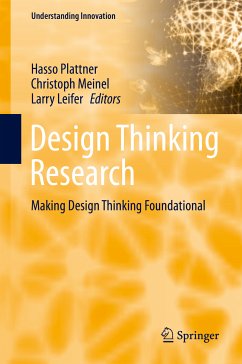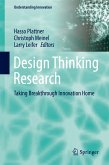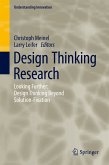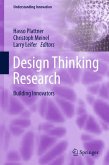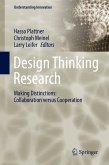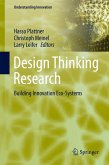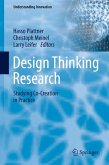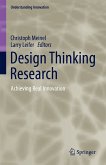Scientists from both institutions have been studying the user-centric innovation method of design thinking for many years now to gain a deep, evidence-based understanding of its underlying principles and functioning. The outcome of their studies, experiments and investigations in the sixth program year are summarized in this volume. Again research covers a diverse range of design thinking domains. The aim, however, is not only to advance design thinking theory and knowledge within the research community. Rather the program strives to ultimately improve design practice and education by gathering scientific evidence that supports design activities.
The first part of this book presents tools and techniques for improved team interaction that have been investigated and developed by the research teams. Creativity and creative confidence as central factors in design thinking are the focus of the second part. The book continues with investigations on the actual impact of design thinking and conceivable metrics. The fourth and final part of the book addresses issues of documentation and information transfer in innovation processes.
By taking the understanding of innovation to a new level that is relevant to all disciplines, our research provides a significant contribution toward making design thinking a foundational science.
Dieser Download kann aus rechtlichen Gründen nur mit Rechnungsadresse in A, B, BG, CY, CZ, D, DK, EW, E, FIN, F, GR, HR, H, IRL, I, LT, L, LR, M, NL, PL, P, R, S, SLO, SK ausgeliefert werden.

